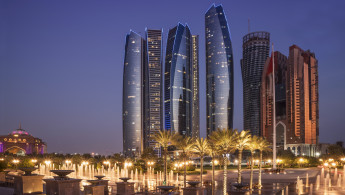UAE warned climate conference panelists 'not to protest', sparking concern ahead of COP28
Participants at a climate and health conference in Abu Dhabi were warned not to criticise the country or protest, sparking concern ahead of the UAE’s hosting of the COP28 UN climate summit in November this year.
Organisers told speakers at last month’s Forecasting Healthy Futures event in the capital to "be respectful of UAE laws", and warned: “Do not criticise Islam, UAE government, corporations or individuals”, and "do not protest".
Is this a joke? Wow 😲😤 #cop28 #epicfail #freedomofspeech
— Ioannis Ioannou 🇪🇺 (@iioannoulbs) April 2, 2023
UAE climate event organisers warn speakers not to ‘criticise corporations’ via @FT
https://t.co/uk0LMIen41
"We understand that climate change can be a controversial subject and we welcome all perspectives and opinions in civil discourse throughout the programme agenda. Protesting is illegal in the United Arab Emirates and any instances of disruptive protesting will be handled by the local authorities," read the guidance given to the panelists, according to the Financial Times.
Climate activists say the restrictions encourage censorship in the Emirates, and raise more questions about the UAE’s suitability to host the UN’s climate summit.
COP conferences are routinely accompanied by protests and demonstrations. Around 100,000 people participated in demonstrations in Glasgow when the UK hosted COP26 in 2021.
"The language circulated here cannot be acceptable at the climate talks. There should be strong pushback on this and the UN should provide as strong a place as possible for the upcoming COP," said Collin Rees from US climate group Oil Change International, as quoted by the Financial Times.
The UAE has been criticised in the run-up to COP28 summit for its oil production activities and the environmental damage caused by them, with many doubts being expressed regarding its suitability as a host.
The Gulf country is one of the world’s biggest oil producers and controversially named Sultan Al-Jaber, chief executive of the Abu Dhabi National Oil Company (ADNOC), to head the crucial summit.





 Follow the Middle East's top stories in English at The New Arab on Google News
Follow the Middle East's top stories in English at The New Arab on Google News


